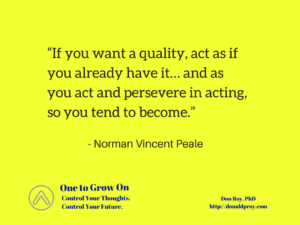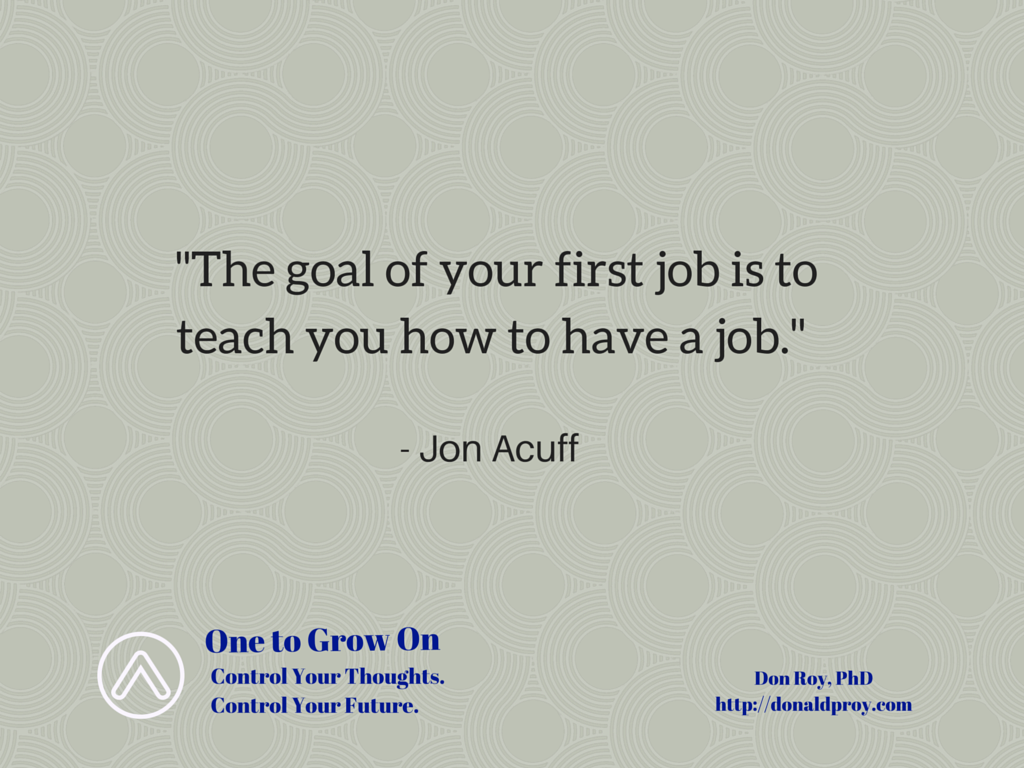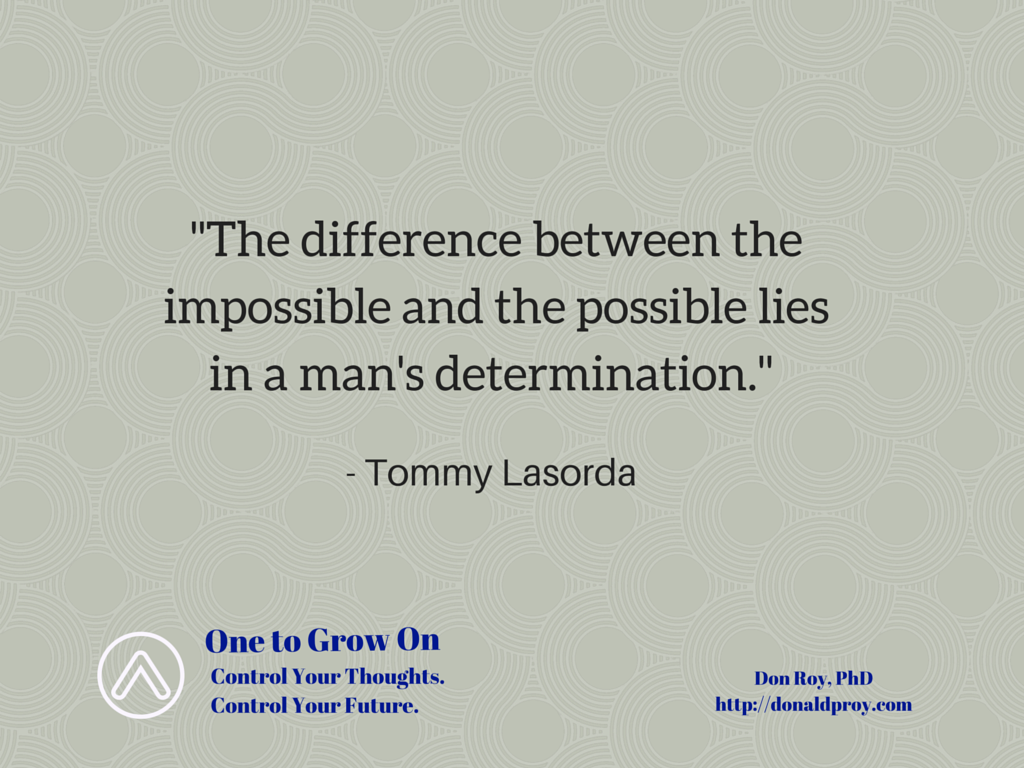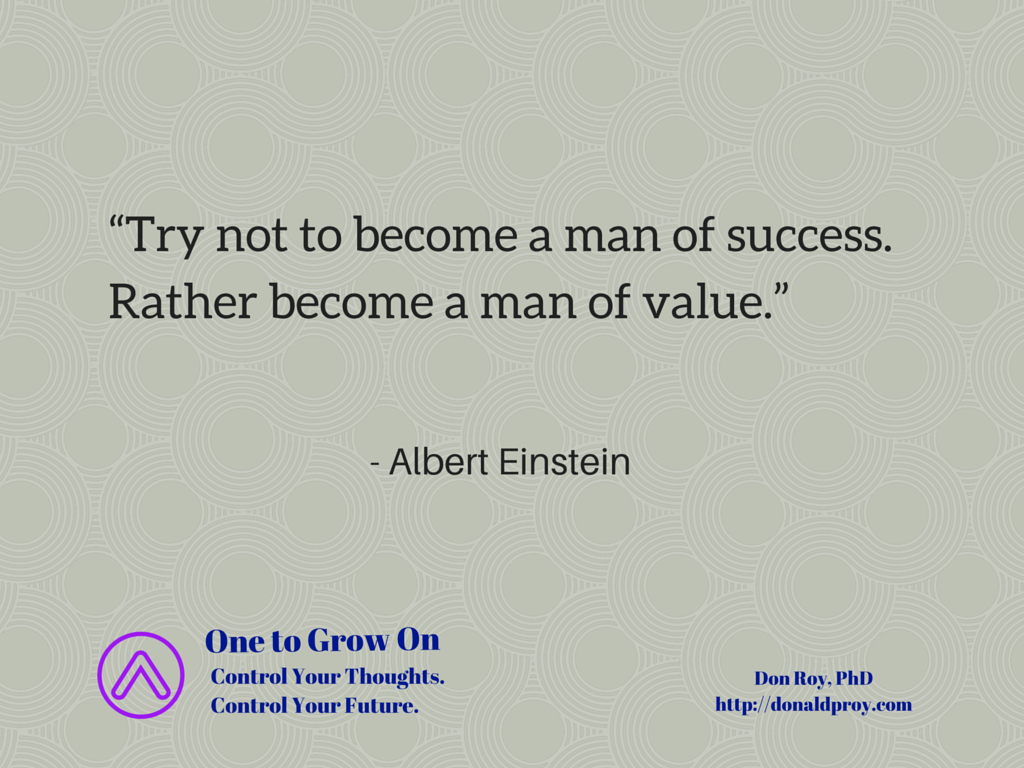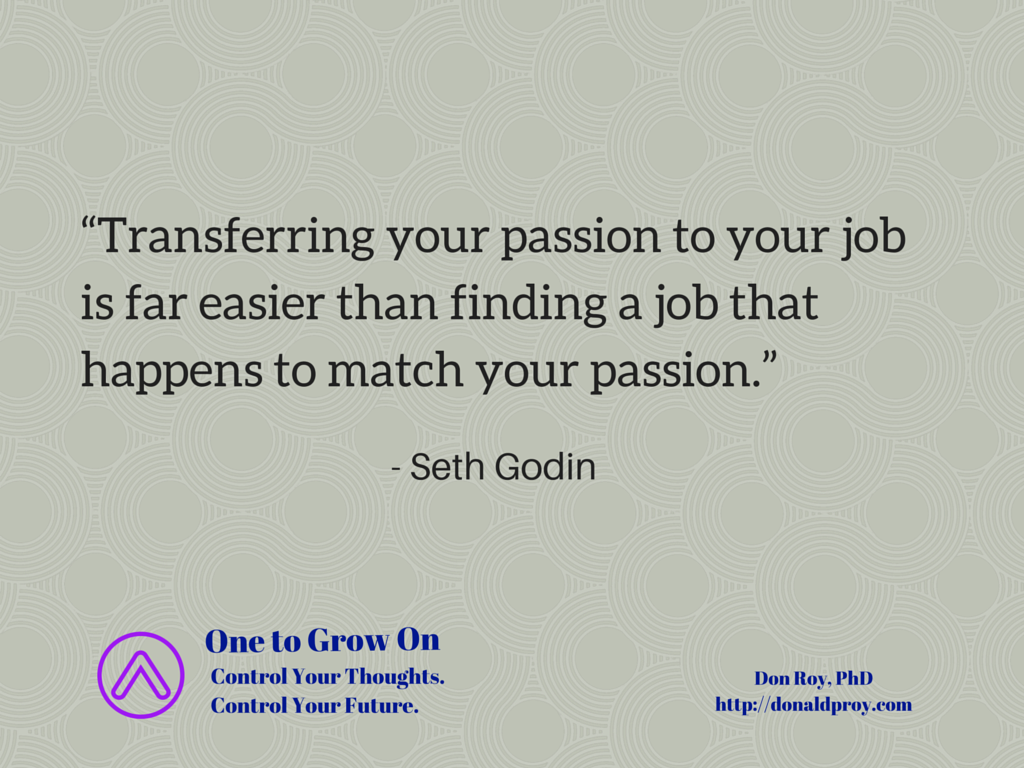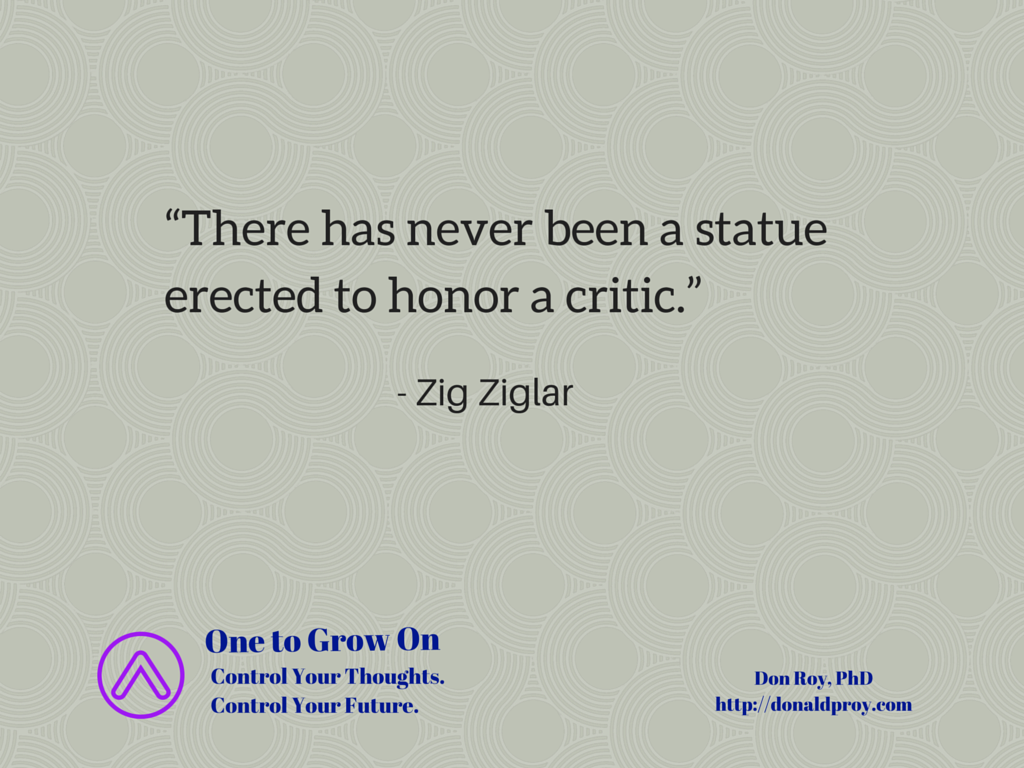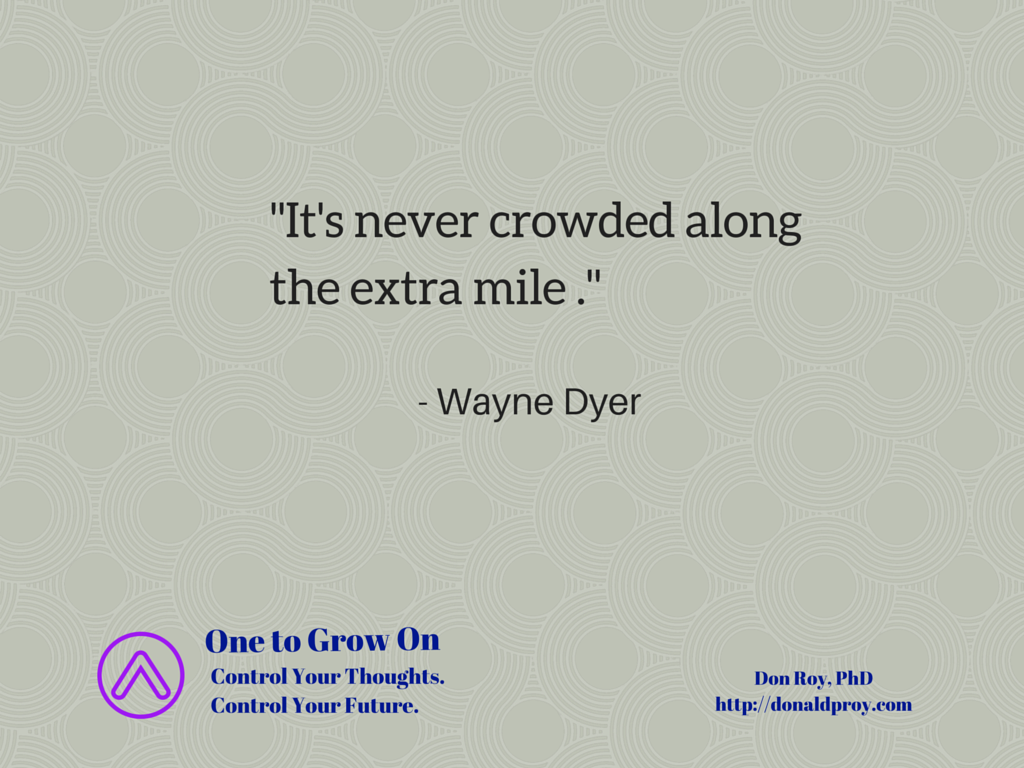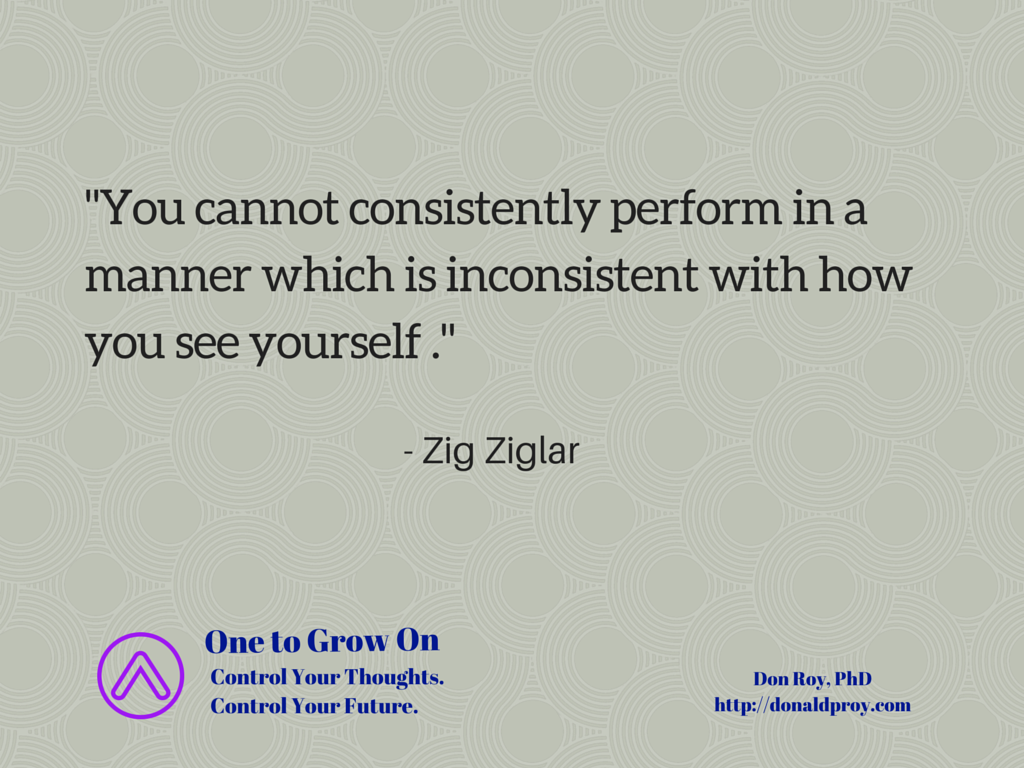When you were young, did you ever dream of being the star pitcher, rock band lead singer, or teen idol movie star (or maybe you still do)? Perhaps you did not imagine yourself in one of these roles, but you may have envisioned yourself on a public stage in some other role. As you get older, the focal point of your imagination may change to your ideal occupation or organization or even the type of person you want to have as a life partner. These dreams of a future state are common. What is less common is making dreams reality by making the choice to act upon them.
It’s about Congruence
How do you prepare for accomplishment later? You must first have the mindset of someone who expects to accomplish. We often hear of athletes visualizing success- draining clutch free throws, blasting the game winning slapshot, or making the game saving tackle. Athletes that achieve those moments don’t just show up and do them; they practice countless hours and prepare mentally by envisioning success in crucial situations.
These achievement examples suggest that actions are congruent with expectations of our actions. Zig Ziglar was quoted as saying “you cannot perform in a manner that is inconsistent with how you feel about yourself.” In other words, you cannot make the game winning shot if you do not see yourself capable of succeeding in that pressure packed situation. Similarly, if you do not allow yourself to envision being an effective salesperson, you may lack the confidence to engage in a difficult negotiation or have the persistence to deal with a stubborn prospect. Act “as if” becomes a prerequisite for success rather than a whimsical idea.
It’s about Reality
Another quote associated with the notion of act in order to become is “fake it until you make it.” This statement possesses a certain amount of liberation- you do not have to be an expert or perfect in what you do before attempting to do it. And thank goodness that is the case! I have been a college professor for twenty years. Every time I go to class I realize that I know only a minute fraction of what one could know about being an effective professor. Yet, I am able to go into the classroom and do my job. After twenty years on the job I still am faking it because I will never know everything about my chosen profession.
However, we must be cautious not to use “fake it until you make it” as a free pass to be unprepared. An act “as if” mindset grounds us in reality, encouraging us to adopt the practices and governing behaviors of someone in the role we aspire to have. Act “as if” has many implications for personal growth. We must answer questions including:
- What is the most effective use of my time?
- What books, magazines, websites, or blogs should I read?
- Which organizations should I follow or join?
- What skills must I develop or strengthen?
Act “as if” is not daydreaming. It focuses us on reality by directing our thoughts, feelings, and actions.
Act “As If” and Your Brand
Dr. Norman Vincent Peale’s quote on acting as if you already have a quality can serve you well in all three dimensions of your personal brand: Meaning, Makeup, and Message. If you want to be viewed as a person of integrity and unwavering values (Meaning elements), you do not wait for others to compliment you on showing these traits, you embody them in your daily actions. When you want to “speak the language” of your chosen field (a Makeup trait), you simply dive in to the works that people in your field consume- you do not need permission! If you feel ready to join the conversation about topics and trends in a field (brand Message), then join conversation. You will invariably make a misstep… and that is OK. After all, you are a human, not a machine. Humans act; machines run. Thus, take advantage of the freedom to act “as if” to position your brand to compete.

